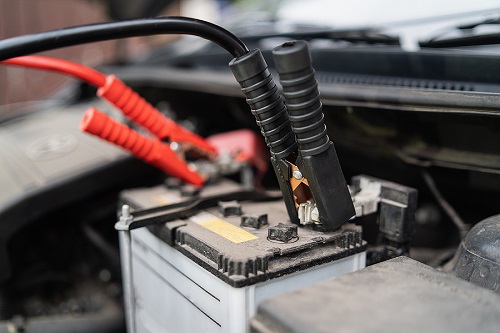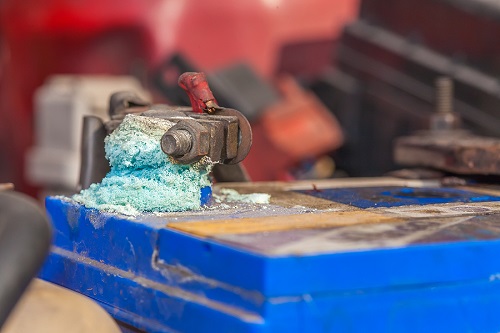They’re the unsung heroes of any car but if something goes wrong, they can leave you stranded at the roadside. So how long do car batteries last? And how can you prolong their life?
The heart of every car but with no moving parts, a vehicle battery is an important and valuable component. We all expect our car or van to burst into life every morning without fail but life, unfortunately, isn’t like that.
And when you do hear that tell-tale click – or worse still, total silence – instead of your engine firing into life, the chances are it’s the battery that will be to blame.
They’re not cheap and we would love them to last forever, but that’s just not going to happen and just like with a tyre, a lightbulb or the clutch, sooner or later, you will need to replace it.
How long should a car battery last?
There are many factors that can have a bearing on how long a battery will go on for but, as a general rule, you should get four to five years out of one.
Long periods of high temperatures, vibrations from not being fixed in properly, the number of times you stop and start your car, moisture and therefore corrosion on the battery terminals, and the number of electronic features vying for power, will all have an impact on the battery’s lifespan.

And when anything that requires power continues working once the car engine is switched off, it will draw on the battery, which is unable to recharge itself. This is known as ‘parasitic drain’ and will also affect the unit’s performance.
There are things you can do to look after your battery and help prolong its life, but as you approach five years, you will probably need to change it no matter how well you have looked after it.
How can you extend the battery’s lifespan?

Keep it clean – every time you open the bonnet, to replenish with oil or windscreen washer fluid for example, give the battery a check for dirt and moisture and treat it to a wipe over. Make sure it’s still tightly screwed in while you’re there.
Drive the car regularly – batteries get topped up when the car is being driven so, if you are not using yours regularly, start it up every two weeks and give it a half-hour drive around. This will do the engine good anyway, plus help to charge the battery.
Avoid short trips – batteries hate being stop-started all the time. It drains them each time you start the engine and gives little or no time to recharge. If you are a town driver and rarely go any great distance, do as above and give the car a good run every so often.
Don’t drain it unnecessarily – avoid leaving electrical features, such as headlamps, radio and air conditioning, on and running when the car’s engine is switched off. You’ll keep draining the battery and it won’t be able to recharge.
Service the car regularly – this is a good idea for your car anyway and one of the key things that will be checked during a service is the state of the battery.
What are the tell-tale signs that a battery is ready for replacement?
Engine labours – if the starter motor grumbles and the engine struggles to burst into life when you crank it, or they don’t operate at all, the chances are you’ll trace the problem back to the battery.

Warning light – your car should have a battery warning light in the instrument panel. If this illuminates it means the system has detected a problem, often a low charge. It’s certainly time now to have the battery checked and probably replaced.
Dim lights – even if your battery has been able to start your car it might not have enough power in it to run other features such as the headlights. If the engine is ticking over but the lights, front and rear, seem dimmer than they should be, that’s a sign of a weak battery.
Don’t ignore the warnings
It might be a motoring expense you don’t want but ignoring any signs that your battery is failing could be a mistake. A flat battery is an inconvenience you can do without and, even though you can jump start a stranded car it’s far better to avoid that situation in the first place with regular checks and maintenance and, if necessary, a new battery.
So, there you have it. A guide to how long a car battery lasts. If you're interested in learning more about cars, why not read our guides on checking if a car has been well maintained , what's good mileage for a used car and the best cars for first time drivers.
